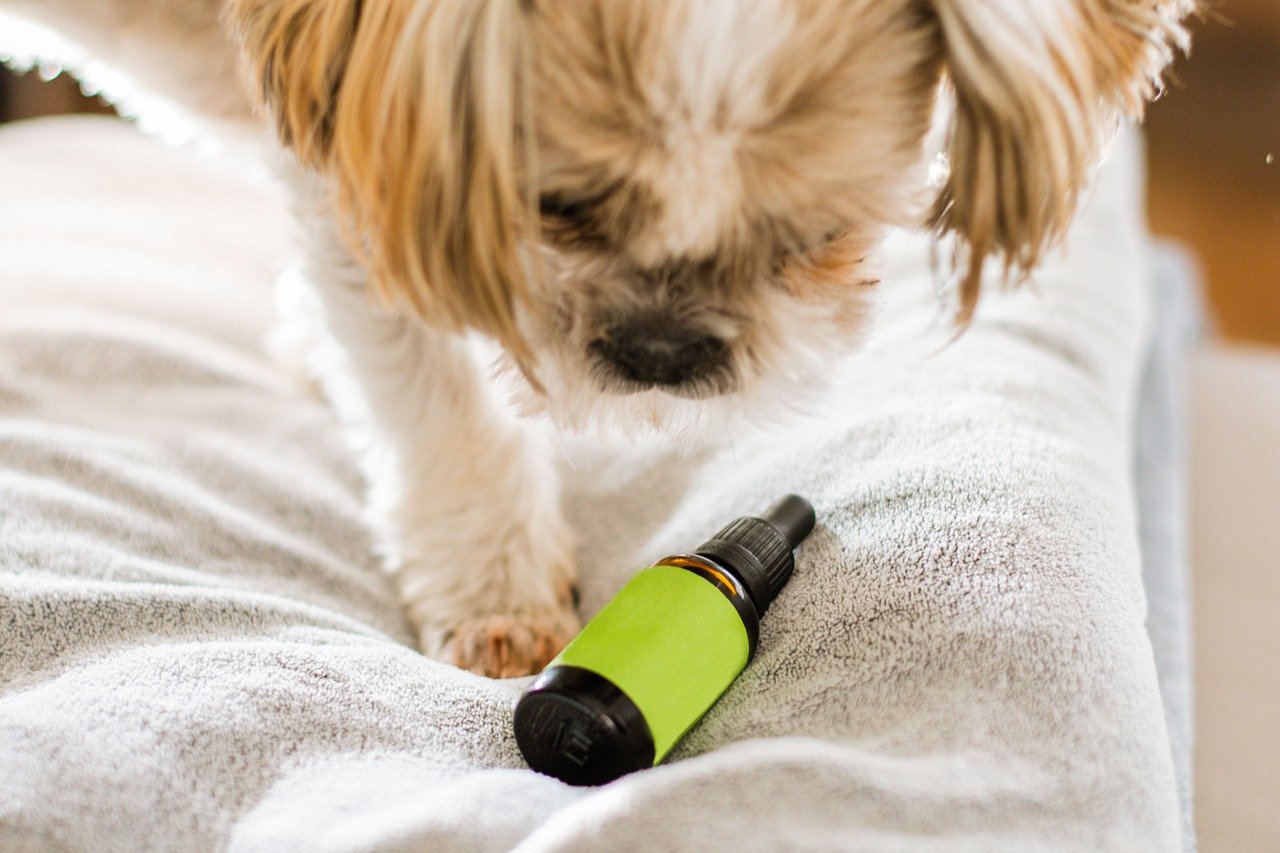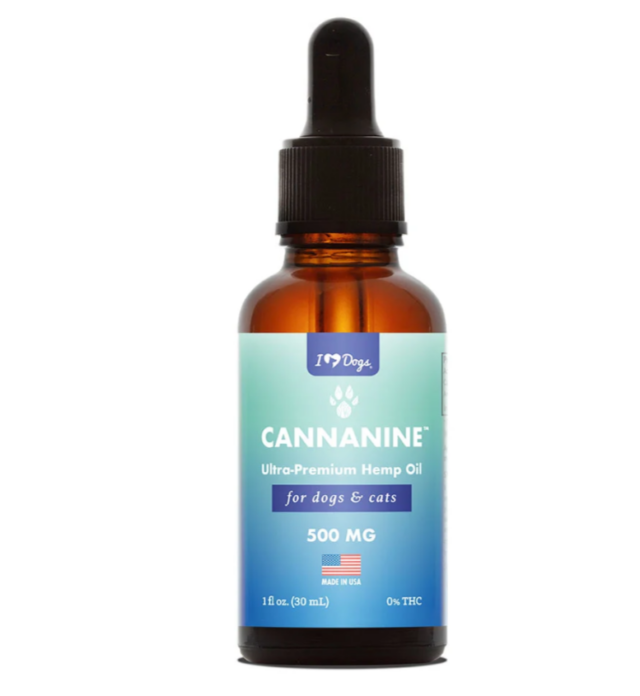The growing popularity of CBD products isn’t limited to human consumption. Many pet owners are also exploring the use of CBD for their four-legged family members. From relieving chronic pain and inflammation to reducing anxiety and behavioral issues, CBD offers a range of benefits for dogs as well. If you have a large breed dog that weighs around 140 pounds and you’re wondering how much CBD to administer, this guide is for you.
 The Benefits of CBD for Dogs
The Benefits of CBD for Dogs
CBD, short for cannabidiol, is one of the non-psychoactive compounds found in the cannabis plant. Unlike THC, which is also found in cannabis, CBD doesn’t cause a high. For dogs, CBD can offer relief from a variety of symptoms including:
- Anxiety and stress
- Chronic pain
- Inflammation
- Seizures
The Optimal CBD Dosage For A 140 lb. Dog
The general guideline for a dog weighing around 140 pounds is to administer 28 mg of CBD.
Note: Start with a smaller dosage initially and monitor your pet’s response. If you don’t notice any changes, consider incrementing the dosage by 20-30%.
Types of CBD Products for Dogs
There are various forms of CBD products available for dogs:
- CBD Oils: Oils are versatile and allow you to adjust the dose precisely. They can be given directly or added to food.
- CBD Treats: These are easy to administer but offer less flexibility in dosage.
- CBD Capsules: Capsules can be hidden in treats or the contents can be mixed with food.
- CBD Topicals: These are applied directly to the skin and are best for localized issues.
Factors Influencing CBD Dosage
Several factors can affect how much CBD your dog may need:
- Age: Older dogs may have different metabolic rates than younger ones.
- Health Conditions: Chronic issues may require a different dose than temporary or less severe conditions.
- Other Medications: Interactions can occur between CBD and other drugs.
How to Administer CBD
The mode of administration can affect the bioavailability of CBD:
- Direct Oral Administration: Offers quick absorption but can be tricky if your dog dislikes the taste.
- Mixed with Food: Easier to administer, but might take longer to be effective.
- Topical Creams: Best for localized conditions like skin issues or joint pain.
Monitoring and Adjusting Dosage
It’s essential to carefully observe your dog after administering CBD:
- Immediate Reaction: Look for any signs of immediate discomfort or allergic reactions.
- Long-term Monitoring: Keep an eye out for any improvements or the lack thereof in the condition you are trying to treat.
If you don’t observe any significant changes, consider increasing the dosage by 20-30%. Always consult your vet before making any changes.
Importance of Veterinary Guidance
Though CBD is generally considered safe for dogs, it should not replace veterinary advice. A vet can provide a comprehensive health plan and offer guidance on how CBD can fit into that plan, especially when other medications are involved.
Potential Side Effects
While CBD is generally well-tolerated, some dogs might experience:
- Dry mouth
- Slight drowsiness
- Minor changes in appetite or weight
Consult your vet if you observe any of these symptoms in your pet.
The Top Rated CBD Oil Recommended by iHeartDogs
iHeartDogs recently reviewed the best CBD oils for dogs and the best CBD treats for dogs. Our top rated oil is the Cannanine brand, which we love for it’s Clean Label Project approval and 3rd Party Testing for every batch. In addition, each and every bottle sold provides 7 meals for homeless pets!
Conclusion
For a 140-pound dog, a standard dosage starting point could be 28 mg of CBD. However, each dog is different, and it’s essential to start with a lower dosage and gradually adjust. If you’re considering using CBD to treat your dog’s symptoms, it’s imperative to consult your veterinarian for the most accurate and personalized advice, especially if your pet is on other medications.
Additional CBD for Dogs Resources
- Complete Guide to CBD & Hemp Oils for Dogs
- Best Rated CBD Oils for Dogs
- Best Rated CBD Treats for Dogs
- Best CBD Gummies for Dogs
- How Much CBD Should I Give a 5 lb. Dog?
- How Much CBD Should I Give a 6 lb. Dog?
- How Much CBD Should I Give a 7 lb. Dog?
- How Much CBD Should I Give a 8 lb. Dog?
- How Much CBD Should I Give a 9 lb. Dog?
- How Much CBD Should I Give a 10 lb. Dog?
- How Much CBD Should I Give a 11 lb. Dog?
- How Much CBD Should I Give a 12 lb. Dog?
- How Much CBD Should I Give a 13 lb. Dog?
- How Much CBD Should I Give a 14 lb. Dog?
- How Much CBD Should I Give a 15 lb. Dog?
- How Much CBD Should I Give a 20 lb. Dog?
- How Much CBD Should I Give a 25 lb. Dog?
- How Much CBD Should I Give a 30 lb. Dog?
- How Much CBD Should I Give a 35 lb. Dog?
- How Much CBD Should I Give a 40 lb. Dog?
- How Much CBD Should I Give a 45 lb. Dog?
- How Much CBD Should I Give a 50 lb. Dog?
- How Much CBD Should I Give a 55 lb. Dog?
- How Much CBD Should I Give a 60 lb. Dog?
- How Much CBD Should I Give a 65 lb. Dog?
- How Much CBD Should I Give a 70 lb. Dog?
- How Much CBD Should I Give a 75 lb. Dog?
- How Much CBD Should I Give an 80 lb. Dog?
- How Much CBD Should I Give a 85 lb. Dog?
- How Much CBD Should I Give a 90 lb. Dog?
- How Much CBD Should I Give a 95 lb. Dog?
- How Much CBD Should I Give a 100 lb. Dog?
- How Much CBD Should I Give a 110 lb. Dog?
- How Much CBD Should I Give a 120 lb. Dog?
- How Much CBD Should I Give a 130 lb. Dog?
- How Much CBD Should I Give a 140 lb. Dog?
- How Much CBD Should I Give a 150 lb. Dog?
- How Much CBD Should I Give a 160 lb. Dog?
- How Much CBD Should I Give a 170 lb. Dog?
- How Much CBD Should I Give a 180 lb. Dog?
- How Much CBD Should I Give a 190 lb. Dog?
- How Much CBD Should I Give a 200 lb. Dog?

 Toledo, United States.
Toledo, United States.